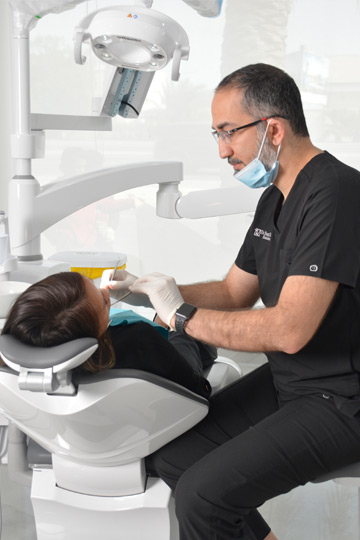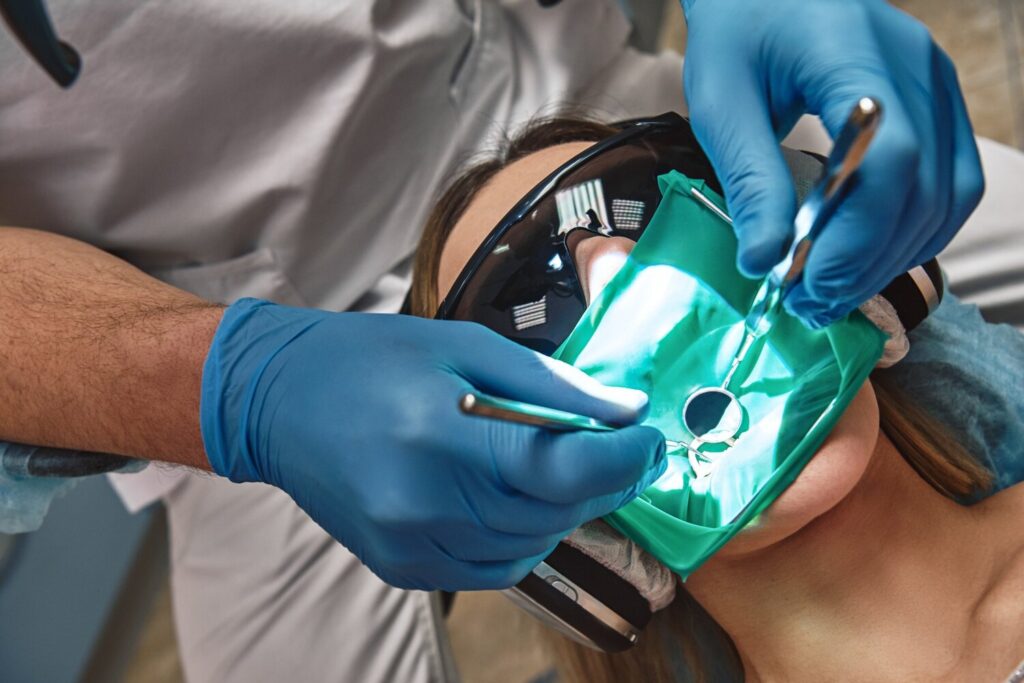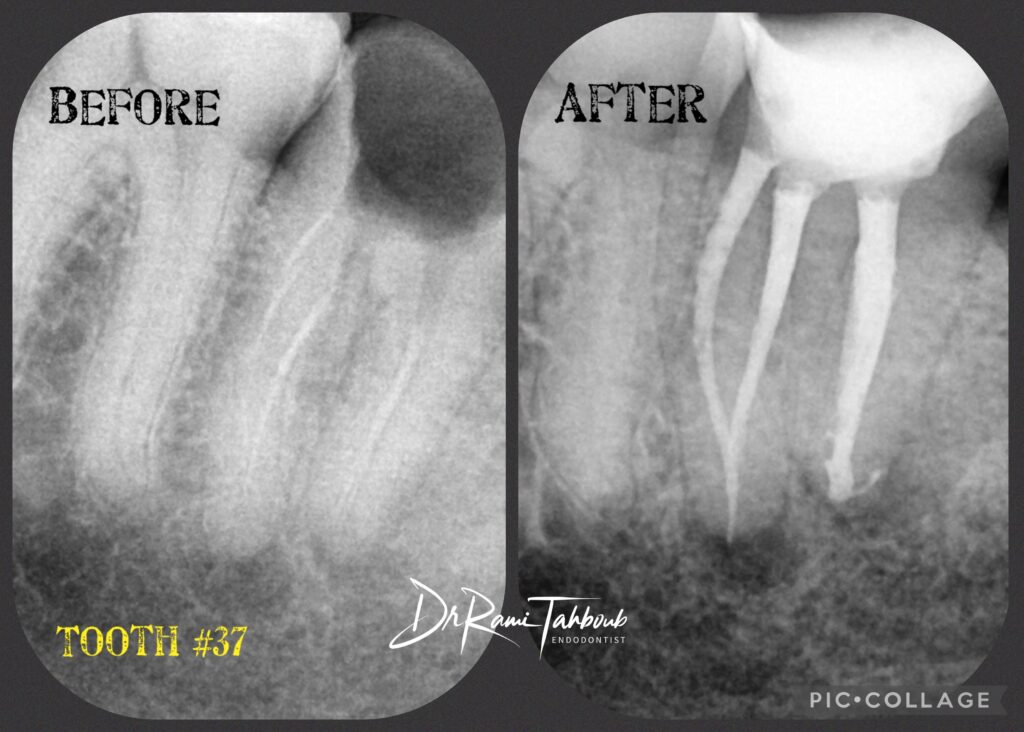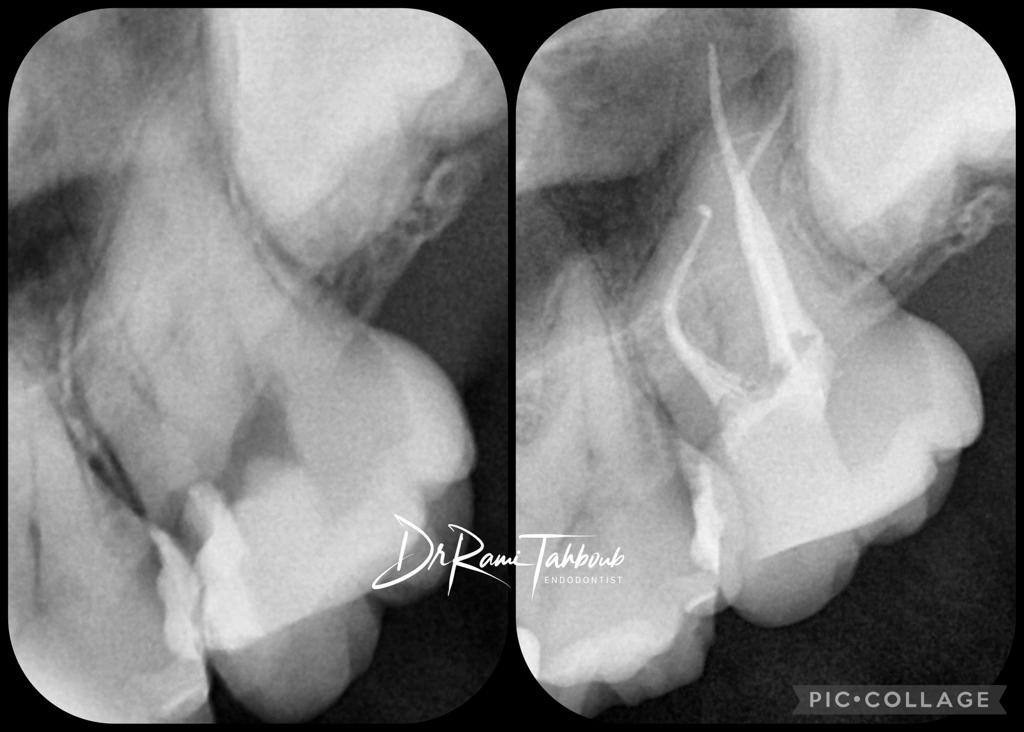Endodontist
Endodontists are sometimes called root canal dentists.
What Does an Endodontist Do?
Endodontists treat problems involving the inside of the tooth, an area known as the “tooth pulp.” It has blood vessels, nerves, and connective tissue. It can get inflamed or infected because of deep tooth decay, traumatic injury to a tooth, and repeated dental work on a tooth. When that happens, an endodontist is the specialist to see.
The most common procedure endodontists perform is a root canal, a procedure in which they remove the tooth’s nerve and tooth pulp that has become damaged or infected. If left alone, the pulp will become inflamed and painful, and ultimately, the tooth will die.
Dentists, too, are able to perform root canals, but an endodontist has a lot more experience doing them.


Reasons to See an Endodontist..
Your general dentist may refer you to an endodontist for a few common reasons:
1- Tooth pain and sensitivity to heat and cold.
2- Bacterial infection. Bacteria can get into the pulp of a tooth through small openings created by tooth decay or injury. Inflammation or a bacterial infection of the pulp is the most common reason people see an endodontist.
3- Tooth injury. If your tooth gets dislodged from its socket or totally knocked out, an endodontist can place the tooth back in the socket, stabilize it, and then often perform a root canal on it.
4- Chipped or fractured tooth. You may need a root canal if a large section of a tooth is missing, exposing the pulp to bacteria.

How to prepare yourself before your root canal visit?
Patients are always advised to have their meals 2 hours before the dental visit. This will prevent any sudden drop in blood sugar levels & will keep them prepared for a post-treatment time as they are instructed not to eat for around 1-2 hours after they leave.
We encourage patients to have a strong painkiller 30-60 minutes before the procedure as this is known to enhance the effect of local anesthesia administered preoperatively. Patients are required to brush their teeth and floss before visiting the dentist.
What to expect during the endodontic visit?
Your endodontist will start with medical & dental history taking. A radiograph (X-ray) will be taken to the tooth/teeth in question to help
& diagnosis & treatment plan.
Your endodontist will explain why you need a root canal and how the treatment will be performed to ease your pain & save your natural
tooth.
A local anesthetic solution will be administered to make the procedure pain-free.
Root canal treatments are performed under an aseptic technique. Meaning that no bacteria or saliva is supposed to get into the root
canals. Therefore, a Rubber Dam will be placed over the tooth to isolate it from other teeth and the oral cavity. This will help in keeping the
patient safe from all small instruments and solutions used throughout the procedure. Eventually, treatment quality will be higher & success is
strongly guaranteed.

How much time & visits does a root canal require?
Most endodontic cases can be performed in a single sitting. However, in some cases due to treatment difficulties or canal conditions; a multiple-
visit protocol is planned. In general, root canal visit is not shorter than 60-90 mins.
Instructions after your endodontic visit?
– Do not eat or drink hot beverages for up to 2 hrs. Drinking water is allowed.
– Do not chew on the treated tooth side for the first 24 hrs.
– Using painkillers within the first 2 hrs after the visit is strong. advised (before the anesthetic effect fades away)
– You can softly brush your treated tooth on the same day. Rinsing is advised.
A soft diet is recommended from the second day until one week after treatment on the treated tooth. Tenderness & soreness when chewing on the treated tooth is quite common after a root canal & might persist for 1-2 weeks.
– Relax & follow your dentist’s instructions.
– Take your prescribed medications as advised.
– Your endodontist might ask for a follow-up appointment to monitor your tooth and take recall radiographs.
– Most root canal-treated teeth will require an extra-coronal coverage (crown or cap) to protect your tooth structure from breaking & to prolong the lifetime of the tooth after a root canal.
– Your endodontist will refer you to the prosthodontist for the fabrication of the crown.
Why IVORY CLINICS for your endodontic needs?
In our clinics we promise a relaxing dental atmosphere with the application of the latest technologies in endodontic treatments.
Our highly qualified endodontist will guarantee you the best possible experience & the most pain-free root canal visit.
Controlling dental pain and associated discomfort are our core value. We will do our best to make you comfortable & to get the best treatment outcome with successful results to maintain your natural dental smile.


